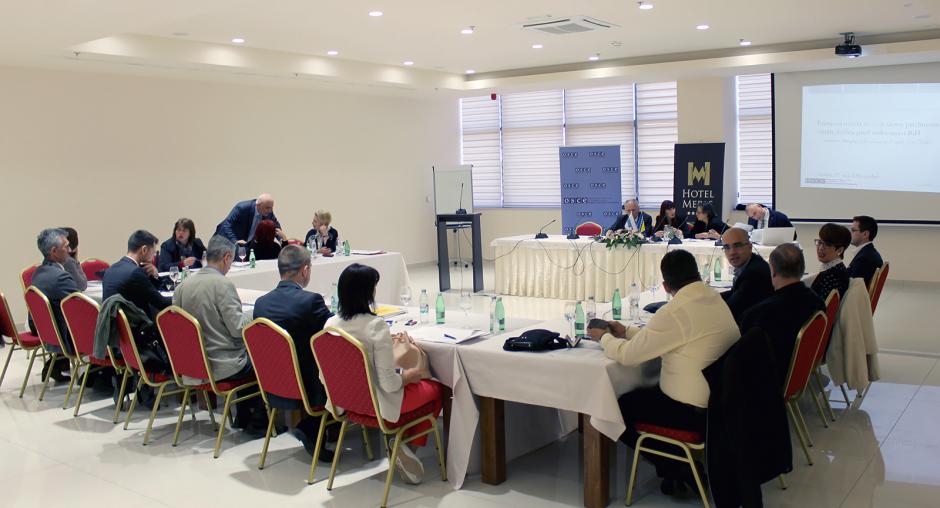War crimes prosecutors in Bosnia and Herzegovina, at OSCE meeting in Mostar, discuss cases involving enforced disappearance

MOSTAR, Bosnia and Herzegovina (BiH), 17 May 2016 – The OSCE Mission to Bosnia and Herzegovina today hosted a peer-to-peer meeting for cantonal and district war crimes prosecutors on the legal qualification of enforced disappearance and on applying substantive law in less complex war crimes cases.
The meeting gathered prosecutors from Mostar, Trebinje, Banjaluka, Tuzla and Bihac prosecutors’ offices, representatives of the Supreme Court of Federation of BiH, and the Republic Prosecutor’s Office of Republika Srpska. Participants reviewed verdicts and indictments in which the charges involve allegations of enforced disappearance, which occurs when persons are detained without formal acknowledgment by a state or other political organization for a prolonged period of time, with the intention of removing them from the protection of the law.
They also examined conclusions from the previous meeting held in Teslic on the consistent application of double jeopardy principle in war crimes cases.
“The topic covered here today will serve as a foundation for further discussion and will provide guidance to practitioners in similar future cases in order to additionally enhance the efficiency of war crimes cases processing in Bosnia and Herzegovina,” said Head of the OSCE Mission’s Mostar Field Office, Doron Frishman.
Judge of the Supreme Court of Federation of BiH Bozidarka Dodik explained that the domestic judiciary is having difficulties in processing war crimes cases with elements of enforced disappearance because of a lack of a legal framework and inconsistent case-law. ”The most effective way to finding best solutions that can contribute to better quality processing and more consistency is in conclusions that result from discussions at meetings such as this one,” she said.
Head of the War Crimes Unit at the Mostar Canton Prosecutor’s Office Vesna Pranjic, said: “It is very important not to slow the processing of war crimes cases because of the inconsistent case-law of different judicial institutions. The conclusions based on the exchange of information and experiences among the practitioners are of crucial importance for achieving a more consistent application of the law.”
The meeting is one of the activities of the OSCE Mission to BiH working towards reducing the war crimes cases backlog, and towards proper qualification and efficient processing of cases in line with the strategic objectives of the National War Crimes Strategy as well as international standards.
